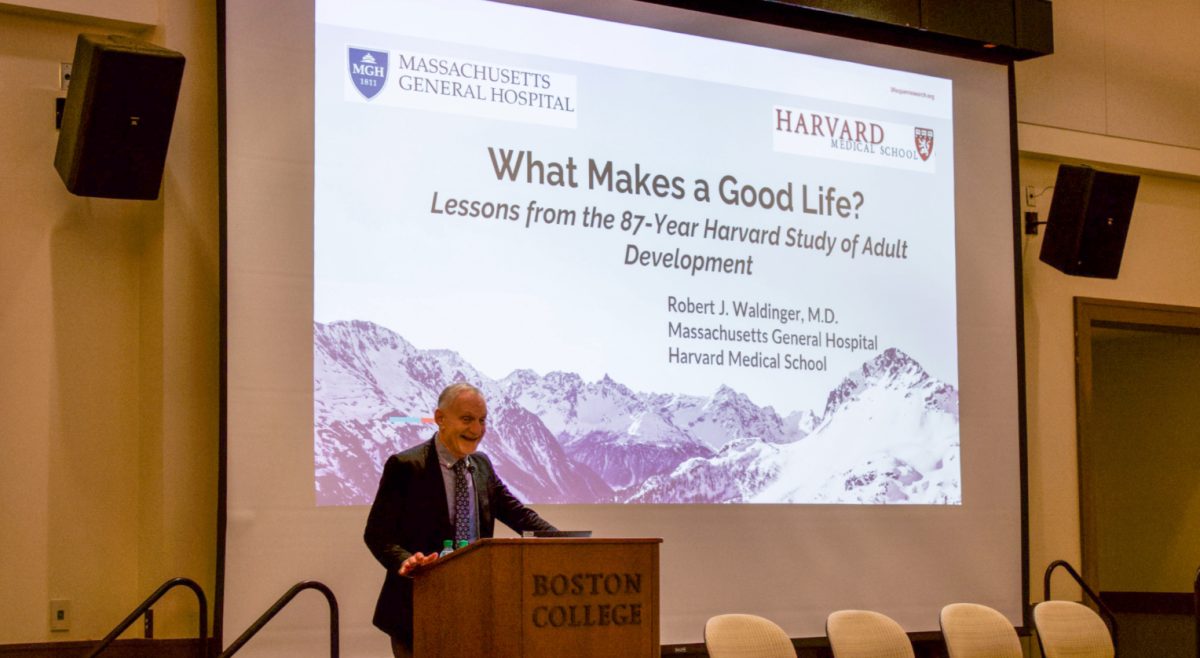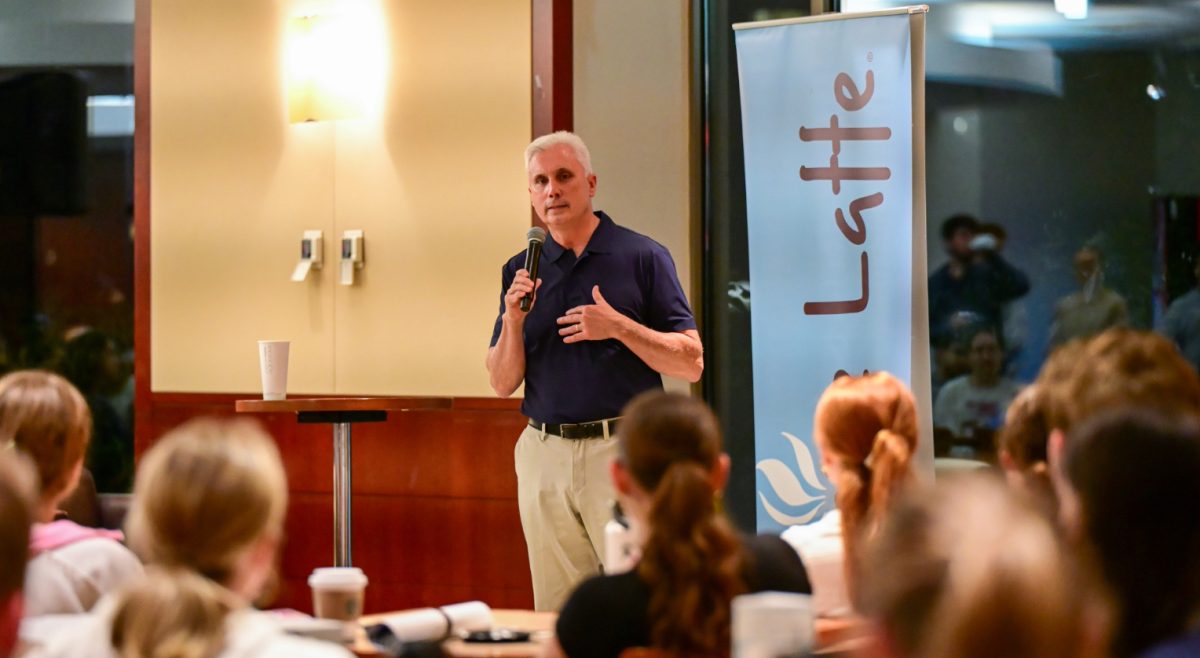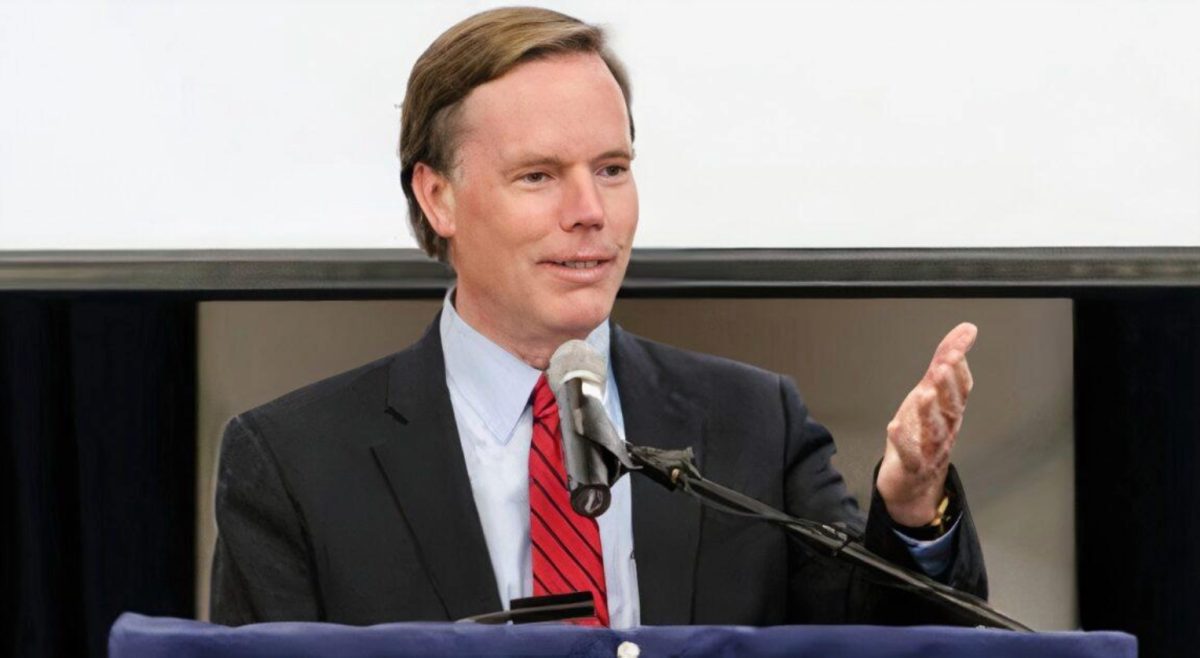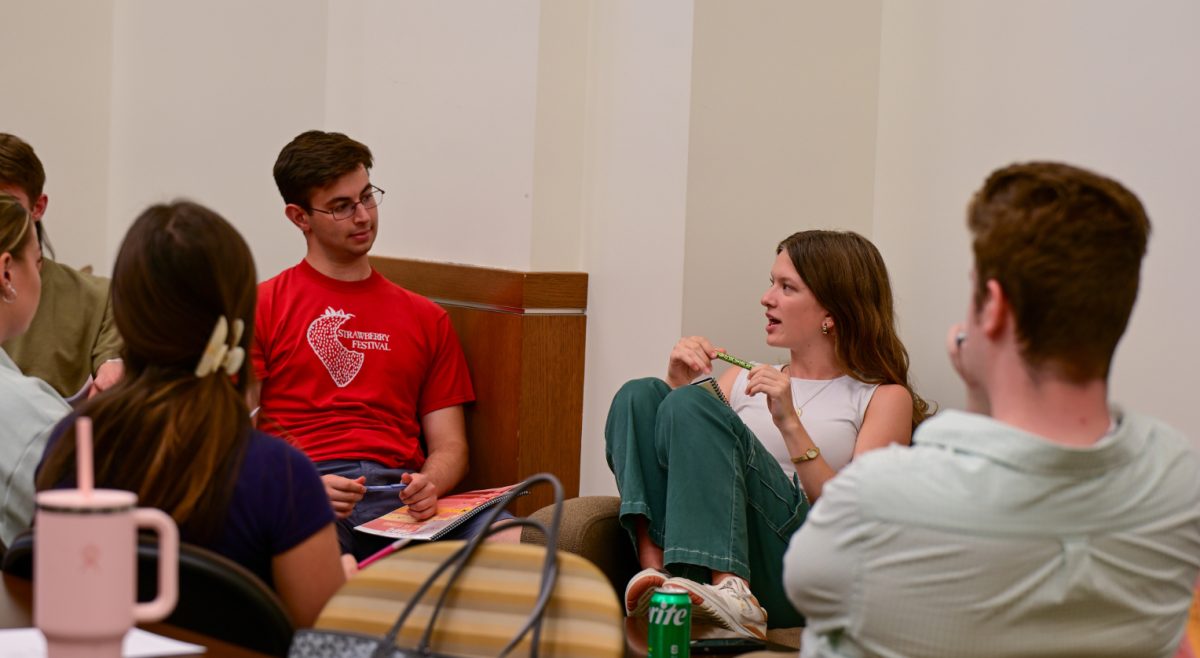Students, photographers, and campaign staffers milled around a packed Boston College Law School classroom on Tuesday night. The room buzzed with excitement as seven Democratic candidates for Massachusetts’ 4th Congressional District seat, waving and smiling at the crowd, took their seats on the debate stage.
Hosted by The Gavel, the “progressive student voice of Boston College,” the debate featured candidates competing in the Democratic primary for the 4th District, currently held by Massachusetts Senate candidate Joe Kennedy III.
The seven candidates—Jake Auchincloss, Dave Cavell, Becky Grossman, Alan Khazei, Ihssane Leckey, Jesse Mermell, and Ben Sigel—debated central issues of their campaign platforms, particularly gun control, affordable housing, and health care.
In their opening statements, the majority of the candidates discussed uniting all constituents of the 4th District on pressing issues, including gun control, affordable housing, and climate change.
When asked about how they plan to address gun control, the candidates unanimously acknowledged a need for comprehensive gun-control reform.
“When I was in the Marines, I slept, ate, trained, patrolled with an AR-15 for four and a half years, and no civilians should have a weapon of war,” said Auchincloss. “We have rolled out [a] comprehensive safety platform that would make the NRA go absolutely nuts. And I welcome that fight.”
Many of the candidates also cited the 2018 school shooting in Parkland, Fla., as well as the subsequent political engagement of the teenage students. Cavell even suggested lowering the voting age to allow some teenagers to vote.
“If the Parkland students are old enough to get shot in their school in Florida, if the Parkland students were old enough to go and lobby Congress and create a national movement, well frankly, I think 16-year-olds are old enough to vote,” said Cavell. “And I think that we should let those people go to the polls and make sure that we’re changing those laws and saving people’s lives in this country.”
Grossman highlighted gun control reform as the focal point of her campaign.
“I refuse to allow Congress to offer thoughts and prayers after every school shooting and fail to do anything to stop the next one,” said Grossman. “That’s why I want to go to Congress and take on the NRA. I am running for Congress with the fierce urgency of a mom that is fed up by what is going on in this country and determined to change it.”
Much of the debate also centered on the candidates’ plans for health care reform. Moderators began the discussion by asking the candidates whether they supported Medicare for All, or a variation of a bill that would eliminate private health insurance and move toward a single-payer health care system.
Each candidate stressed the importance of working toward making health care more accessible to all Americans, though they disagreed on how to achieve it. Cavell and Khazei advocated for the creation of a path to a universal health care system. Leckey, drawing on her own experience of struggling to afford health care, argued in favor of immediate universal health care and the elimination of private insurance.
“Health care is a human right, and in the fight for human rights, there is no debate,” said Leckey. “This is a moral problem, where we are trying to agree here to let people die for another year before we implement Medicare for all.”
The debate then transitioned to the ways each candidate would approach the opioid epidemic. Many candidates identified the destigmatization of addiction as one of the most crucial steps to take.
“We need to destigmatize addiction,” Mermell said. “We need to tackle the mental health crisis and the crisis of despair that is facing so many people who are struggling to access opportunity.”
Many candidates also brought up the need to hold “Big Pharma” accountable for the crisis. Cavell stressed that the opioid epidemic would be his “day-one” issue in Congress.
“What about the next Big Pharma?” Cavell said. “Why did this happen in the first place? Because of government corruption. That’s what we need to stop.”
Several candidates emphasized the need to view the opioid epidemic as more than a one-dimensional crisis.
“We need a holistic approach,” Sigel said. “We need massive federal investment, and that includes increasing community-based treatment centers. That includes short-term injection sites that are safe.”
The debate also covered affordable housing, with Khazei proposing a new G.I. Bill funded by an estate tax.
“Every young person who’s willing to do a year of [military] service will have a minimum of $35,000 in the bank that they could use for a down payment on their first house, they could use to start a business or nonprofit, they could use for college,” Khazei said.
Mermell explained that though affordable housing is a multifaceted issue, targeting student debt is an important step to addressing affordable housing as a whole.
“It wouldn’t hurt if we got rid of that massive student debt and made college more affordable so you have a little bit of money freed up so you can go buy that first home,” Mermell said.
Grossman concentrated on affordable housing within Newton, specifically referencing the Northland housing project.
“This project stands poised to add one of the single biggest infusions of affordable units in Newton’s history,” Grossman said. “That is something that we need to be investing in all over this country, and we need to use our federal resources and incentives to reward and incentivize communities like Newton, communities all over this district, and in this country to be making these choices.”
Despite the disagreements among the candidates, though, each candidate united on the need to rally around the Democratic presidential nominee regardless of the winner.
“We have to unite. We all have to get on the team. We started at 25 candidates,” Khazei said. “There were a lot of people running, but I will try to be a bridge-builder and make sure that once the voters decide, we all get behind them.”



















